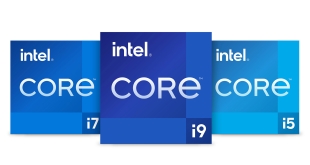Our newest GPU test system has been built with the intention of benchmarking low to mid-range graphics cards, we have a separate test system which benchmarks higher-end graphics cards such as the RX 480, GTX 1070 and GTX 1080. To reflect the performance of GPUs being tested the scope of testing has been reduced to 1080p and 1440p, since 4K is largely irrelevant for GPUs of this price point.
General Test System Notes
- AMD Graphics cards were benchmarked with the AMD Crimson Display Driver 16.6.1, though the RX 480 was tested on 16.7.2 to rectify power issues with the PCI Express slot
- Nvidia Graphics cards with the Nvidia Forceware 368.39 driver except the newer Nvidia GTX 1060 GPUs which were tested using the 368.64 release driver
- To tune the test system appropriately for acoustic measurements the case was outfitted with ultra quiet Noctua 800RPM fans and the Corsair H100i set to a fixed fan speed of 700RPM to further reduce the base noise level.
- The CPU was left to default Intel Turbo behaviour, disabling motherboard manufacturer enhancements such as all-core Turbo to minimise heat output inside the case and non-GPU related power consumption.
- Each benchmark or game is run 3 times at each resolution with an average result of the three runs taken as the final result for the graphs. Where benchmark screenshots are shown note these may not match the graphed figure since an average of three is taken.
Test System Components
- Case: Corsair 400Q (two stock case fans replaced with Noctua 800 RPM 120mm rear exhaust and 140mm front intake fans)
- Processor: Intel Core i7-6700K (Stock Intel Turbo behaviour).
- Memory: 32GB (4 x 8GB) G.Skill Trident Z DDR4 running at JEDEC 2800MHz.
- Graphics Card: Variable.
- System Drive: Mushkin Chronos 120GB.
- Games Drive: Samsung 850 EVO 512GB SSD
- CPU Cooler: Corsair H100i w/ Noctua NTH1 (fan speed limited to 700 RPM on Corsair H100i).
- Power Supply: Seasonic Platinum 760W.
- Operating System: Windows 10 Pro 64-bit.
Comparison Graphics Cards List
- EVGA GTX 750 Ti 2GB Superclocked (1176MHz core, 1255MHz boost, 5400MHz memory )
- MSI R7 370 2GB Gaming (980MHz core, 1030MHz boost, 5600MHz memory)
- MSI R9 380 4GB Gaming (980MHz core, 5700MHz memory)
- MSI R9 390 8GB Gaming (1040MHz core, 6000MHz memory)
- PNY GTX 950 2GB XLR8 OC Gaming (1152MHz core, 1342MHz boost, 7200MHz memory)
- PNY GTX 960 4GB XLR8 OC Gaming (1203MHz core, 1266MHz boost, 7200MHz memory)
- Sapphire R9 380X 4GB Nitro OC (1040MHz core, 6000MHz memory)
- XFX R7 360 2GB Core Edition (1050MHz core, 6000MHz memory)
- Zotac GTX 970 4GB (1076MHz core, 1216MHz boost, 7010MHz memory)
- ASUS GTX 950-2G (1026MHz core, 1190MHz boost, 6612MHz memory)
- AMD RX 480 8GB (1266MHz core, 8000MHz memory)
- AMD RX 480 4GB (8GB card with 4GB vBIOS, 1266MHz core, 7000MHz memory)
- Nvidia GTX 1060 6GB Founders Edition (1506MHz core, 1708MHz boost, 8008MHz memory)
- Nvidia GTX 1070 8GB Founders Edition (1506MHz core, 1683MHz boost, 8008MHz memory)
- ASUS GTX 1060 6GB STRIX OC (1620MHz core, 1848MHz boost, 8208MHz memory)
- MSI GTX 1060 6GB Gaming X (1569MHz core, 1784MHz boost, 8008MHz memory)
Software and Games List
- 3DMark
- Ashes of the Singularity
- Furmark
- GPU-Z
- Grand Theft Auto V
- Metro Last Light Redux
- Middle-earth: Shadow of Mordor
- MSI Afterburner
- Rise of the Tomb Raider
- Steam
- Unigine Valley
 KitGuru KitGuru.net – Tech News | Hardware News | Hardware Reviews | IOS | Mobile | Gaming | Graphics Cards
KitGuru KitGuru.net – Tech News | Hardware News | Hardware Reviews | IOS | Mobile | Gaming | Graphics Cards



‘There is certainly no shortage of options when it comes to choosing a GTX 1060 graphics card.’ You are joking right? They are mostly not in stock, apart from the fairly crappy Zotac mini. Do you people actually live on the same planet as those who actually want to buy a 1060?
Shortage of options and shortage of stock are not the same thing. Aside, there’s plenty of stock if you’re willing to shop around a bit.
<<tw. ★★✫★★✫★★✫★★✫★★✫★★✫★★✫★★✫★★✫★★✫★★✫★★✫★★✫★★✫★★✫★★✫★★✫★★::::::!ir266m:….,….,..